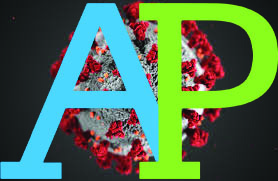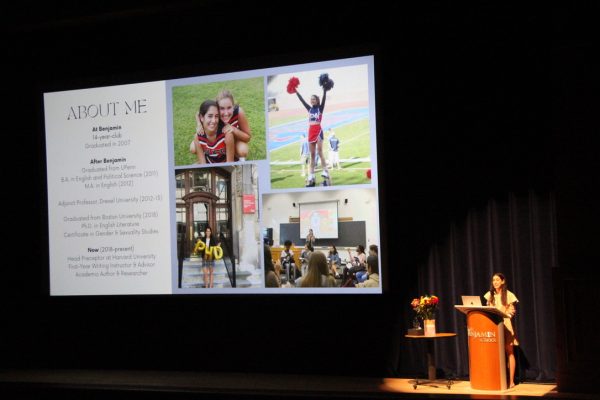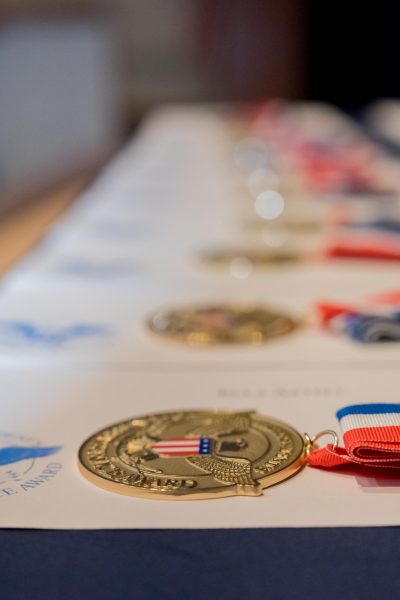Faculty and Students Express Opinions on Modified Advanced Placement Program

Despite the year’s abrupt ending, the College Board still held AP exams; they were shorter and taken online.
Last year’s Advanced Placement (AP) exams reflected major changes; consequently, students developed varying opinions on the process and its results.
While the College Board revised the curricula and test formats of several AP courses prior to the school year, the outbreak of COVID-19, led the College Board to further rework exams’ content to adapt them for athome, online testing. In late March, the College Board began regularly updating students and teachers on the changes made to the AP program via an “AP Coronavirus Updates” page on its website.
Among the most closely watched updates were those regarding test content. While slight modifications were made to all exams, some were altered more than others. One test that saw a major overhaul was AP U.S. history (APUSH). Usually 3 hours and 15 minutes long, however, this year, the APUSH exam took place over 45 minutes.
Additionally, in lieu of an expected document-based question, short answer, long essay, and multiple choice questions, this exam solely featured a single document-based question. Also, the exam’s curricular timeline was narrowed from the years 1491- present to 1754 – 1945.
On the other hand, the only change AP Drawing students saw was a slight reduction in the number of works artists had to submit: from 15 to 10 in the Sustained Investigation section and from five to three in the Selected Works section.
In addition to changes from the College Board, the School also temporarily revised its testing policy to allow students to opt-out of the late spring exams. 42 students opted out of 62 exams at the School according to Dr. Renea Yates, who is a student services counselor and helps coordinate the AP Program.
Despite these many changes, the School saw an increase in its students’ scores when compared to the previous year’s. Yates notes that of the 231 students who completed 529 exams, 89.2% scored above a 3. This individual success rate correlates with a similarly high 84% pass rate on individual tests.
The School’s increase in scores outpaced score increases on the national level on a scale of 5 to 1, testifying to Benjamin’s generally strong academic program. First and foremost, the number of students who scored a 1 or a 2 (a failing grade) generally decreased. One example can be seen with AP English Language and Composition where the failure rate decreased by almost 7% according to data from the College Board. Additionally, nationwide, more students scored 4s and 5s on their AP exams this year. For instance, there was over a 14% increase in these scores on the AP French Language exam.
On average, the pass rate increased by over 3% across all tests administered by the College Board. However, it’s important to note that the percentage may be inflated due to the implementation of the College Board’s open-note policy, a decrease in content, and the opportunity to opt out of exams.
The aforementioned differences, both in terms of formatting and scores, caused students to develop strong opinions about the tests they took and the AP program more broadly.
For example, junior Tyler Taplett was pleased with the exams. “I believe that the College Board organized this year’s AP exam the best they could within the given time period. Obviously this is an unprecedented situation that would have never been anticipated. With that being said, I think the 45 minute exam online was a very good compensation for the AP exams. I took the AP US history exam and I believe that the format of one DBQ (document based question) in 45 minutes really tested our knowledge,” he said.
On the other hand, junior Jake Zur felt the tests could have been better because of the inconveniences he experienced. “Unfortunately, I had to retake [a test] due to technical glitches. I tried to submit with 9 minutes left but the button wouldn’t work. I kept clicking until time ran out and a notice popped up that I needed to retake it. I followed the forms and tested again on June 5th. I think that the College Board definitely should have prepared earlier when they realized there was a possibility to go online so there were fewer errors with the site,” he said.
Zur was not the only one who experienced issues when testing; other AP test takers ran into nearly the same problem, with many taking to social media to share their frustrations according to a May 18th CNN article. In fact, submission problems were so widespread that a class action lawsuit was filed against the College Board in late May.
AP teachers, who were forced to modify their classes based on the new exam structure, also had strong feelings about last year’s testing.
Math Department chair Mr. Michael Ruggie had mixed feelings about the exams. “I thought the College Board did a fine job of creating and getting a new exam format out when everyone went to virtual learning. That being said, I would have liked to see the exams encompass more material than they did. For example, my students’ AP Calculus BC exam could have tested more BC subject matter. In fact, about 90% of the test was material from last year. I’m worried that colleges won’t give credit for tests with such little new content,” he said.
On the other hand, English teacher Ms. Mary Ditaranto had only positive things to say about the AP program. “My experience with the AP and College Board was more than satisfactory. As a program they were prepared with tips, insights, overviews of the AP tests, … and thorough in their planning on executing such a momentous task in a short period of time. Because they made decisions on the types of tests, the timing and the date, I was able to fully prepare my students. I was informed on the type of essay [in advance] so it made preparation much easier. My students and I got to work and had close to three weeks to prepare,” she said. Ms. Ditaranto also interacted with the College Board in a way most other teachers do not: by being an AP grader. “I graded AP Exams online this summer. And once again the College Board was organized and communicative. I was informed on the training process, the dates, times, etc. There were no last-minute changes, no additional details[.] I knew what I was doing a month in advance. My table reader would email or call me each day. In four days I graded 750 essays,” she stated.
Regardless of varying opinions around the School, students are optimistic that this year’s exams will return to normal.
“Last year we paid the usual $94 fee to take each test but got a condensed version instead: It’s only fair that we get what we paid for. Assuming nothing happens between now and next May, I’m hopeful that everything will return to normal as the coronavirus wanes,” said senior Brandon Davis.

Evan is a senior and in his third year at The Pharcyde. He serves as Managing Editor of the newspaper and is President of the affiliated writing club....









